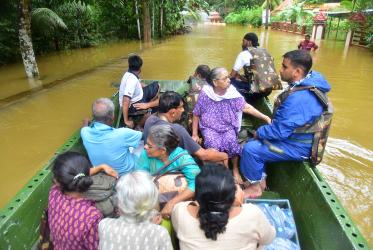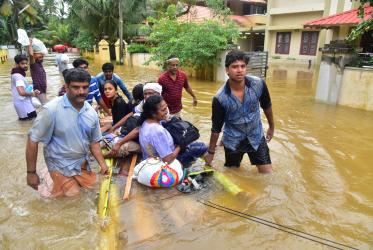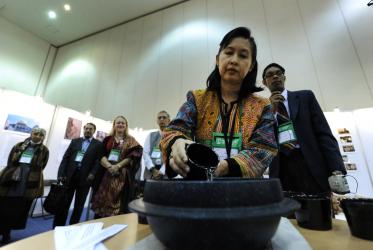Displaying 21 - 40 of 43
13 June 2019
WCC represented at International Sanitation Convention in India
18 October 2018
G7 must address famine
22 May 2017
During Lent, a “carbon fast” can honour God’s creation
09 February 2017
Plans for 2017 decided by WCC Executive Committee
01 December 2016
WCC Executive Committee issues statement on climate justice
25 November 2016
Winners of WCC photo contest announced
09 May 2016
Land rights focus of panel discussion
17 November 2015
Religious leaders highlight significance of water at WCC assembly
04 November 2013
Time to pray for God’s creation
02 September 2013














